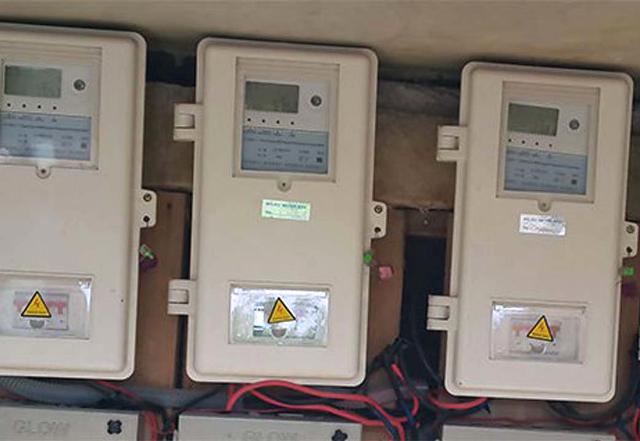Nigeria’s Electricity Metering Landscape: A Slow but Steady March Towards Transparency
Nigeria’s power sector has long been plagued by inefficiencies, with the issue of inadequate metering standing out as a major source of contention between electricity distribution companies (DisCos) and consumers. The Nigerian Electricity Regulatory Commission (NERC), tasked with overseeing the industry, has been pushing for increased metering penetration to enhance transparency and fairness in billing. Recent data released by NERC reveals a modest advancement in metering rollout across the nation. During May and June 2025, a combined total of 148,077 new meters were installed, bringing the cumulative number of metered customers to 6,422,933 by the end of June. This translates to a national metering rate of 54.33%, a slight improvement from 53.78% recorded in May. While this growth indicates positive momentum, it also underscores the persistent challenge of ensuring all electricity consumers have access to prepaid meters, eliminating the contentious practice of estimated billing.
DisCo Performance: A Spectrum of Progress and Laggards
The performance of individual DisCos in metering deployment varies significantly, painting a picture of uneven progress across the country. Ikeja DisCo leads the pack with an impressive 84.65% metering rate, closely followed by Eko DisCo at 83.33% and Abuja DisCo at 73.06%. These figures suggest a more robust metering infrastructure and commitment to customer satisfaction in these regions. However, the picture is less rosy at the other end of the spectrum. Yola DisCo lags significantly behind with a metering rate of just 28.55%, followed by Jos DisCo at 29.51% and Kaduna DisCo at 33.46%. This disparity highlights the need for targeted interventions and regulatory oversight to ensure that all DisCos accelerate their metering efforts and provide fair and transparent billing to their customers.
Notable Improvements and Persistent Challenges
Amidst the mixed performance, some DisCos have demonstrated commendable progress in accelerating their metering rollout. Aba DisCo, for instance, witnessed a significant jump in its metering rate, rising from 37.88% in May to 45.17% in June, thanks to the installation of 12,376 new meters. Benin DisCo also achieved a milestone, surpassing the 50% metering mark during the same period. These improvements offer a glimmer of hope and demonstrate the potential for rapid progress when DisCos prioritize metering deployment. Despite these positive developments, a significant hurdle remains. Seven out of the twelve DisCos still fall below the 50% metering threshold, leaving millions of customers vulnerable to the often-criticized practice of estimated billing. This continued reliance on estimations underscores the urgency of addressing the metering gap and ensuring that all consumers have access to accurate and transparent billing mechanisms.
Estimated Billing: A Source of Consumer Frustration and Regulatory Intervention
The prevalence of estimated billing continues to be a major source of dissatisfaction among electricity consumers in Nigeria. Customers often complain about inflated bills that do not accurately reflect their actual energy consumption. In response to these concerns, NERC has implemented a policy of setting monthly energy caps for all feeders. These caps are designed to limit the maximum amount that can be billed to unmetered customers based on the feeder’s total energy consumption and the usage patterns of metered customers. This measure aims to provide a degree of protection against arbitrary billing practices. However, reports persist of DisCos exceeding these caps and overbilling customers, leading to regulatory sanctions. This highlights the ongoing challenge of enforcing these regulations and ensuring compliance across the board.
NERC’s Role: Balancing Regulation and Consumer Protection
The NERC plays a crucial role in navigating the complexities of Nigeria’s electricity market. It is tasked with balancing the interests of DisCos and consumers while striving to create a more efficient and transparent system. The commission’s efforts to promote metering deployment, set energy caps, and sanction erring DisCos are all part of this delicate balancing act. However, the persistent metering gap and ongoing consumer complaints underscore the need for more robust regulatory oversight and enforcement. The NERC must continue to refine its strategies and strengthen its mechanisms to ensure that DisCos fulfill their obligations and that consumers are protected from unfair billing practices.
The Road Ahead: Towards Universal Metering and Customer Satisfaction
The progress made in metering deployment during May and June 2025, while encouraging, represents only a small step towards achieving universal metering coverage in Nigeria. The disparity in performance among DisCos highlights the need for a more concerted and targeted approach to metering rollout. The NERC’s ongoing efforts to regulate estimated billing and enforce compliance are crucial, but more needs to be done to address the root causes of consumer dissatisfaction. Ultimately, achieving universal metering is essential for ensuring transparency, fairness, and accountability in Nigeria’s electricity sector. This, in turn, will contribute to improved customer satisfaction and a more sustainable and efficient power sector.


